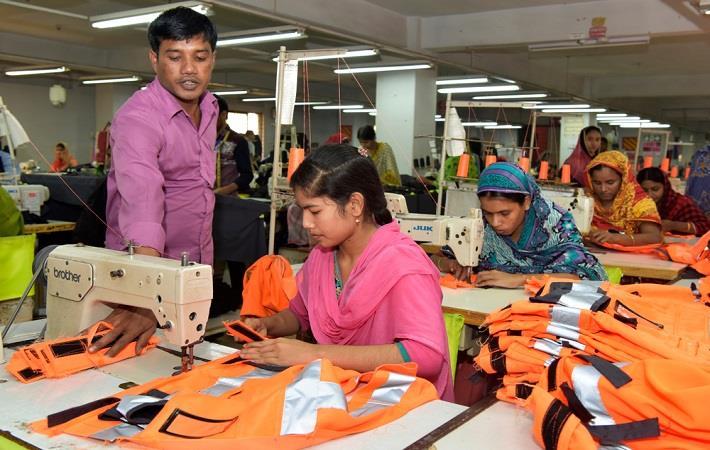The immediate response from garment brands must not be limited to full payment for existing orders but should also include payment of at least 60 days of wages for workers in their supply chain for the lockdown period, says ‘The Emperor has no Clothes: Garment Supply Chains During the pandemic’, the third in a series of reports by Asia Floor Wage Alliance (AFWA).
To meet this, AFWA demands global brands to pay suppliers an additional 2 per cent of their past annual sourcing cost as a supply-chain relief contribution (SRC) that is directly payable to all workers.The immediate response from garment brands must not be limited to full payment for existing orders but should also include payment of at least 60 days of wages for workers in their supply chain for the lockdown period, says 'The Emperor has no Clothes: Garment Supply Chains During the pandemic', the third in a series of reports by Asia Floor Wage Alliance.#
It is the responsibility of brands to make sure that suppliers do not resort to mass layoffs, wage cuts and union-busting. In the short to medium term, brands must commit to paying a fair price that can ensure the payment of a living wage to all workers and increase transparency in supply chains, says the report released this month.
On an urgent basis, governments should ensure universal food support as well as debt relief, and scale up investments in rural and urban employment guarantee schemes. Governments must establish affordable and easily accessible public healthcare systems and ensure that occupational health standards are met in factories and workplaces.
There must be mechanisms that ensure systems of support and grievance redressal for workers facing COVID-19-induced discriminatory practices in layoffs and wage cuts, the report says.
In the short to medium term, governments must abandon policies that dilute social protection so as to attract foreign investment, it says. Governments must hold brands responsible for upholding labour and environmental standards, fair costing and securing social safety nets, it adds.
The report is based on information from garment workers, trade unions and labour rights organisations, media reports, circulars and press releases from governments and other stakeholders.
Fibre2Fashion News Desk (DS)
